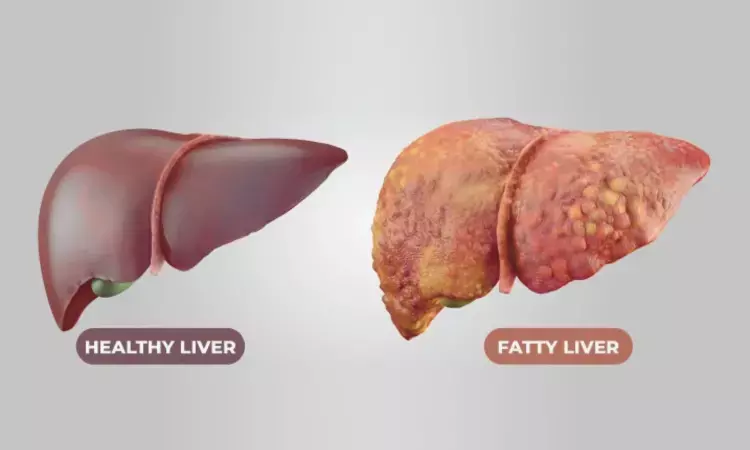- Home
- Medical news & Guidelines
- Anesthesiology
- Cardiology and CTVS
- Critical Care
- Dentistry
- Dermatology
- Diabetes and Endocrinology
- ENT
- Gastroenterology
- Medicine
- Nephrology
- Neurology
- Obstretics-Gynaecology
- Oncology
- Ophthalmology
- Orthopaedics
- Pediatrics-Neonatology
- Psychiatry
- Pulmonology
- Radiology
- Surgery
- Urology
- Laboratory Medicine
- Diet
- Nursing
- Paramedical
- Physiotherapy
- Health news
- Fact Check
- Bone Health Fact Check
- Brain Health Fact Check
- Cancer Related Fact Check
- Child Care Fact Check
- Dental and oral health fact check
- Diabetes and metabolic health fact check
- Diet and Nutrition Fact Check
- Eye and ENT Care Fact Check
- Fitness fact check
- Gut health fact check
- Heart health fact check
- Kidney health fact check
- Medical education fact check
- Men's health fact check
- Respiratory fact check
- Skin and hair care fact check
- Vaccine and Immunization fact check
- Women's health fact check
- AYUSH
- State News
- Andaman and Nicobar Islands
- Andhra Pradesh
- Arunachal Pradesh
- Assam
- Bihar
- Chandigarh
- Chattisgarh
- Dadra and Nagar Haveli
- Daman and Diu
- Delhi
- Goa
- Gujarat
- Haryana
- Himachal Pradesh
- Jammu & Kashmir
- Jharkhand
- Karnataka
- Kerala
- Ladakh
- Lakshadweep
- Madhya Pradesh
- Maharashtra
- Manipur
- Meghalaya
- Mizoram
- Nagaland
- Odisha
- Puducherry
- Punjab
- Rajasthan
- Sikkim
- Tamil Nadu
- Telangana
- Tripura
- Uttar Pradesh
- Uttrakhand
- West Bengal
- Medical Education
- Industry
Investigational FGF21 analogue improves fibrosis in NASH patients: Phase 2b trial

USA: Treatment with an investigational FGF21 analogue, pegozafermin, improved fibrosis in patients with NASH (nonalcoholic steatohepatitis), according to a phase 2b trial.
The findings from the ENLIVEN study, presented at the EASL (European Association for the Study of the Liver) annual meeting and published in The New England Journal of Medicine, support the advancement of pegozafermin into phase 3 development.
Pegozafermin is a long-acting glycopegylated FGF21 (fibroblast growth factor 21) redevelopment for treating severe hypertriglyceridemia and NASH. However, pegozafermin's safety and efficacy have not been well-established in patients with biopsy-proven noncirrhotic NASH.
Rohit Loomba from the University of California, San Diego, La Jolla, and colleagues conducted a phase 2b, multicenter, double-masked, 24-week, randomized, placebo-controlled trial. It included 222 patients with biopsy-confirmed NASH and stage F2 or F3 (moderate or severe) fibrosis. Two hundred nineteen patients were randomly assigned to receive subcutaneous pegozafermin at a dose of 15 mg or 30 mg weekly, or 44 mg once every two weeks or placebo weekly or twice weekly.
The two primary endpoints were an improvement in fibrosis (defined as reduction by ≥1 stage, on a scale from 0 to 4, with higher stages reflecting greater severity), with no worsening of NASH at 24 weeks, and resolution of NASH without fibrosis worsening at 24 weeks. Safety was also evaluated.
The study led to the following findings:
- The percentage of patients who met the criteria for fibrosis improvement was 7% in the pooled placebo group, 22% in the 15-mg pegozafermin group (difference versus placebo, 14 percentage points), 26% in the 30-mg pegozafermin group (difference, 19 percentage points), and 27% in the 44-mg pegozafermin group (difference, 20 percentage points).
- The percentage of people who met the criteria for NASH resolution was 2% in the placebo group, 37% in the 15-mg pegozafermin group (difference versus placebo, 35 percentage points), 23% in the 30-mg pegozafermin group (difference, 21 percentage points), and 26% in the 44-mg pegozafermin group (difference, 24 percentage points).
- The most common adverse events associated with pegozafermin therapy were nausea and diarrhoea.
"The findings indicate a favourable and safe profile of pegozafermin, with diarrhoea and nausea as the most common adverse events (AE) tied to pegozafermin therapy," the researchers wrote."
One patient in the 44-mg group had a severe adverse pancreatitis event following a single dose. The researchers stated, "This patient had gallbladder sludge on imaging. The clinical course was typical for uncomplicated acute pancreatitis."
"Treatment effects were consistent across various subgroups, including in [patients] on background GLP-1 therapy, and that efficacy was comparable with weekly and every-2-week dosing intervals," Loomba said at EASL.
Reference:
The study "Randomized, Controlled Trial of the FGF21 Analogue Pegozafermin in NASH" was published in The New England Journal of Medicine.
DOI: 10.1056/NEJMoa2304286
Dr Kamal Kant Kohli-MBBS, DTCD- a chest specialist with more than 30 years of practice and a flair for writing clinical articles, Dr Kamal Kant Kohli joined Medical Dialogues as a Chief Editor of Medical News. Besides writing articles, as an editor, he proofreads and verifies all the medical content published on Medical Dialogues including those coming from journals, studies,medical conferences,guidelines etc. Email: drkohli@medicaldialogues.in. Contact no. 011-43720751


